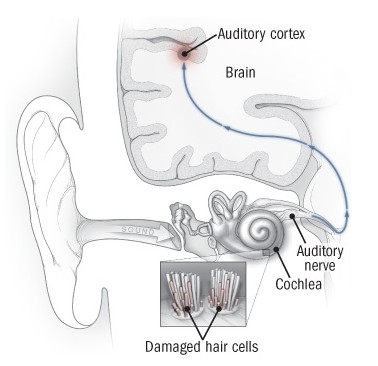Tinnitus Handicap Inventory Online Form
This online tinnitus handicap inventory is advantageous to help you determine the amount of difficulties that your tinnitus produces. Use this to notice any kind of development or regression of your tinnitus signs and symptoms.
Tinnitus is a generated symptom with multiple causes that indicates an auditory “phantom” perception without any external sound source. The prevalence estimates are widely varied in population studies from 5 to 43%. While most will get use to or habituate to it, a subset of those affected relate its experience to the onset or worsening of psychological distress which may indicate a key risk factor for chronic symptoms and can severely impact quality of life.
Following responding to Every question click on the form button to obtain your results. A new window will open with the Tinnitus Handicap Inventory Score and Interpretation.
Please note, this is an online tinnitus handicap form and is not worded the same as the original tinnitus handicap inventory. For this purpose, the wording is not that important and the results are valid compared to the original. It may aid in your decision to obtain professional help or help you monitor any home remedy you may try. Your doctor may give you the original form to help determine your status and to monitor your tinnitus progress to treatment over time.
Although there have been attempts to use items individually or subscale for analysis, a 2020 study in Head & Face Medicine did a factor analysis and evaluation of each item of the tinnitus handicap inventory [THI] and concluded, “As a result of the factor analysis, only the total score, not any subscale, would be clinically useful in the THI. Examination of each item of the THI was helpful to understand the status of patients with tinnitus and comorbid symptoms of tinnitus.”
A 2020 study in BMJ Open provided data on the natural history of tinnitus, indicating resolution is relatively uncommon and improvement or worsening of symptoms equally likely. The authors recommended primary prevention, managing symptoms, and monitoring changes in bothersomeness (can be done using this form).

